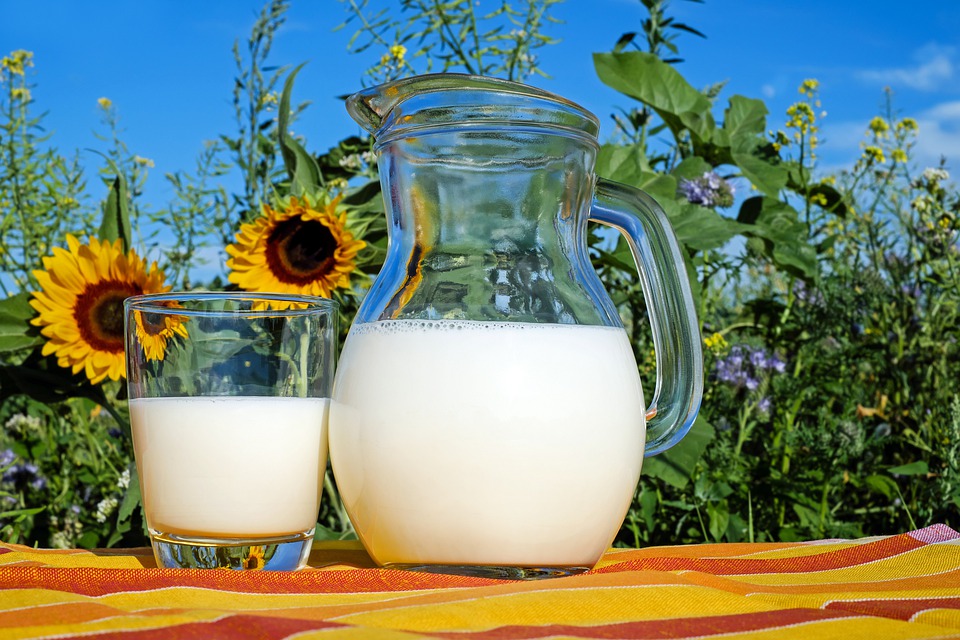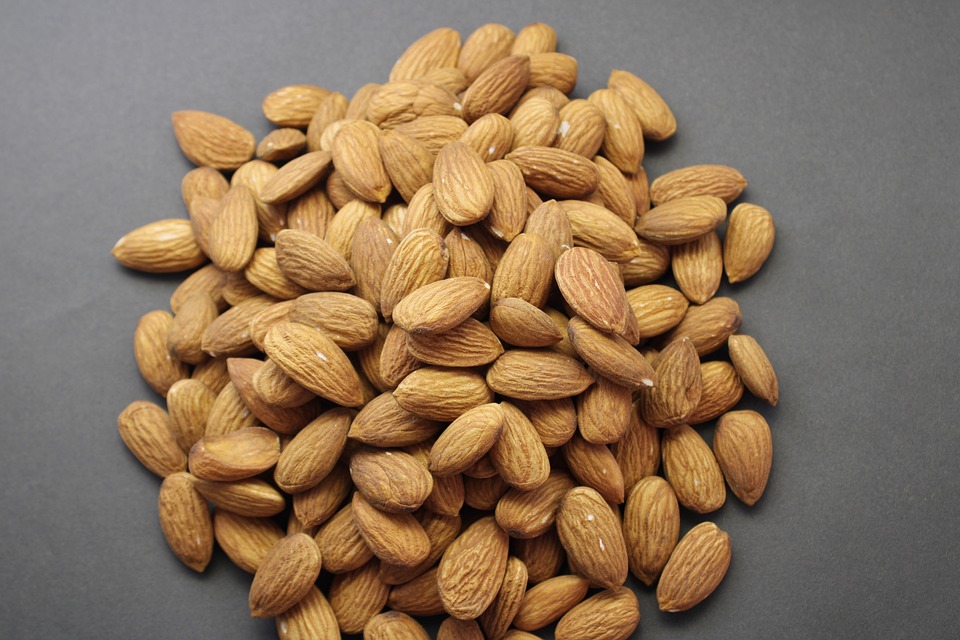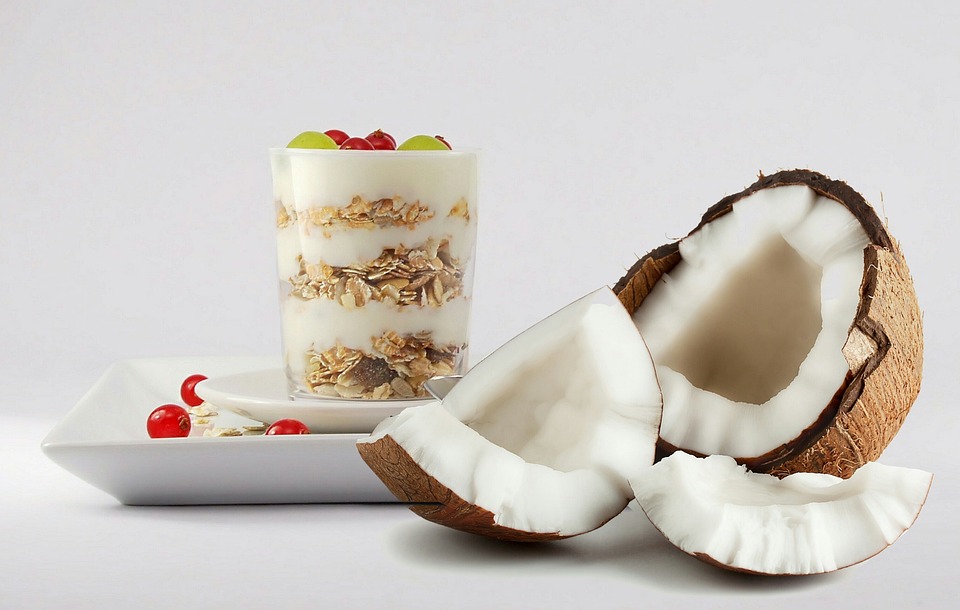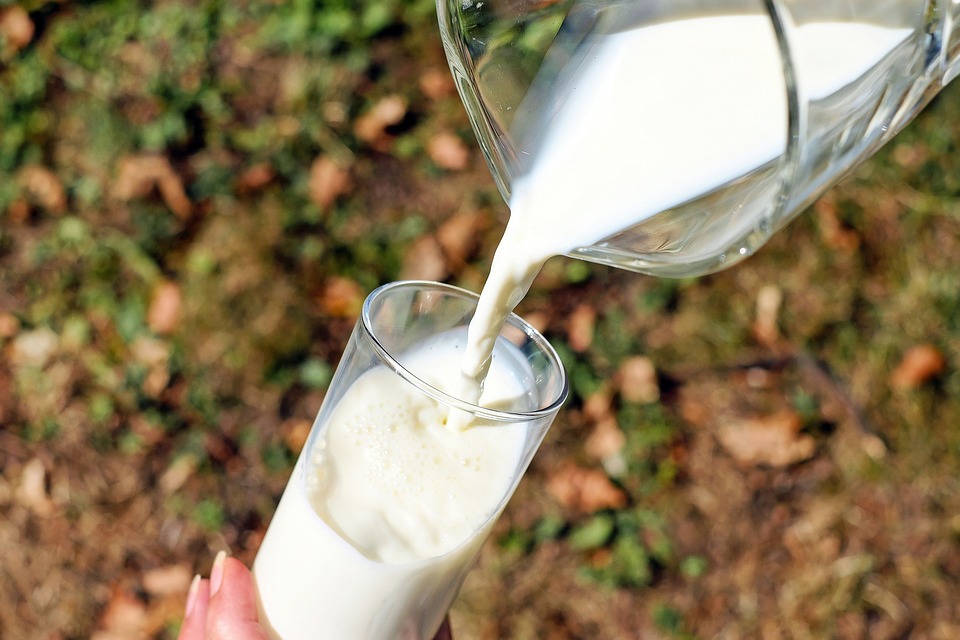
There are many different types of milk that you can drink, including cow milk, goat milk, and various vegan alternatives like soy milk, rice milk, coconut milk, and almond milk. There is a debate about whether organic food is better than non-organic food.
A Comparison of the Different Types of “Milk”
Cow milk
The research suggests that cow milk is actually very healthy. An assessment found that milk may have greater benefits than previously thought, including reducing the risk of type 2 diabetes, childhood obesity, stroke, and cardiovascular disease, and increasing bone density.
A different meta-analysis found that consuming milk is not related to all-cause mortality, meaning it is probably not beneficial or harmful to your health overall. The study only controlled for total calorie intake and level of exercise, not for dietary intake of other specific foods. This raises the possibility that milk may be positive for your health as long as you’re not mixing it with Cocoa Puffs.
The negative aspect of cow milk is that a lot of people have issues digesting it. There are pills you can take that have the enzyme lactase in them, which helps you to digest lactose. Another option is to drink milk that has been fortified with lactase. If you’re lactose-intolerant, that should work just fine, but lactose might not always be the issue.
One out of every ten people is also allergic to casein, one of the two main proteins in milk. Dairy products, especially those containing casein, may increase the risk of acne. There is some evidence that acne is not caused by casein, but by beef RNA that is absorbed into the bloodstream, causing an autoimmune response.
You should cut out cow’s milk if you suffer from acne or have an allergic reaction to lactase-fortified milk.
A child’s height is associated with lower consumption of non-cow milk. Although this study found an association between milk substitutes and heart disease, it did not determine which type of milk substitute was most likely to be associated with heart disease, or why this association exists. We don’t know whether the association is due to ingredients in some milk substitutes or if it’s just because cow milk has a higher protein content.
Whole milk, reduced fat, or skim milk?
Children who drink milk with higher fat content are less likely to be obese. Although high milk fat consumption does not necessarily prevent obesity, it is possible that parents who give their children skim milk are more likely to have obese children. This could be because skim milk is less effective in preventing obesity. There is no evidence that drinking full-fat milk causes obesity.
Fat is an important part of a balanced diet. Meals with some fat in them will make you feel fuller than fat-free meals, but too much fat is not better. One study has found that the amino acids present in whole milk are easier for the body to absorb than those found in skim milk.
A whey-casein blend causes more sustained muscle protein synthesis than consuming either skim milk or whey protein alone. Whole milk helps you build more muscle than skim milk, which raises your metabolism and prevents fat gain.
The study only compared whole and skim milk, but not reduced-fat milk, which raises the possibility that reduced-fat milk may offer similar amino acid bioavailability to full-fat milk.
Based on a study, as well as the fact that fat makes meals more filling, milk should contain some fat. However, it is not clear if whole milk or low-fat milk is better. While dieters may opt for reduced-fat milk to lose weight, those trying to gain weight may favor whole milk. If you’re trying to lose weight, you should pick whichever diet you think you can stick to.
Goat milk
Goat milk has a higher protein content than cow milk but is otherwise nutritionally similar. Although it is commonly thought to be less allergenic, there is not much evidence to support this claim. Goat’s milk contains less casein than cow’s milk, but has similar amounts of lactose, and is overall very similar to cow’s milk. Having less casein is good for people with allergies, but it is bad for protein synthesis.
The experiment found that 58 out of 25% of people who are allergic to cow milk are also allergic to goat milk. A study with 12 subjects found that 75% of them were able to tolerate goat’s protein. The study added that “goat’s milk can be an excellent substitute in children older than 2 years old” for the 25% of patients that tolerate goat’s protein.
Although there has not been much research done on the subject, what has been done suggests that there is no difference between babies being fed goat milk and cow milk. One study did note, however, that the protein content of goat milk is more similar to human breast milk than cow milk. A different study said that unmodified goat milk should not be preferred over cow milk for feeding babies because it has higher protein and lower folate (vitamin B9) content. However, the study found that goat milk is not less allergenic than cow’s milk overall.
If cow milk creates an allergic response for you, goat milk might be an option to explore, although it may not be conveniently accessible depending on your location. If it’s not available nearby, you may need to purchase it online in powdered form. Babies under 2 years old should not be given goat milk products without consulting a doctor, as they may be allergic to goat milk.
Almond milk
Although almond milk does not contain lactose or casein, most people can still drink it without any digestive problems. However, if you have an allergy to nuts, then almond milk is not a good choice for you. In lab tests, infants who were allergic to cow milk were not shown to have any adverse reaction to almond milk.
Almond milk is not as healthy as animal milk in terms of protein content. It does not have a complete amino acid profile and therefore does not provide the same health benefits as animal milk. Choose a sugar-free brand of beverage and add a natural sweetener, like stevia, if you desire a sweeter drink.
If you’re considering non-dairy milk because of concerns about the environment, you should note that almonds use a tremendous amount of water to grow, contributing to water shortages, loss of groundwater, and increased water costs, as well as indirectly to the environmental impact of reservoirs and other water infrastructure. The same criticisms can be made of most animal-based products, but not of other vegan milk substitutes.
The difference between oat milk and almond milk is that oat milk is made from oats and almond milk is made from almonds.
The most significant difference between oat milk and almond milk is that oat milk is made with oats and almond milk is made with almonds. This is referring to almond milk, soy milk, and other types of non-dairy milk. These beverages have a milk-like consistency and can be used in many of the same ways as regular milk, but they are not made from dairy. According to Esther Blum, who is a Registered Dietitian, plant milk is simply a milk alternative and does not count as actual milk, which derives from the udder of an animal such as a cow, goat, or sheep. Plant-based milk is a good, healthy option for those who have milk allergies or are lactose intolerant. Blum argues that plant-based milk is not only lower in saturated fat and calories than cow’s milk, but also provides some of the nutritional benefits of the whole plants themselves.
Both oat milk and almond milk have health halos that are more hype than they actually deserve, says Lauren Harris-Pincus, RD. She states that both types of milk are mostly water, and not very much oats or almonds are used. Both oat and almond milk usually contain vitamins A, D, B2, and B12. “Cow’s milk and other animal products contain nutrients that are beneficial to people on a plant-based diet, who may not be getting enough of these nutrients,” she says.
What are the benefits of oat milk?
- It’s closer in consistency and taste to cow’s milk.
The main reason that oat milk is so popular has more to do with taste than nutrition. Oat milk is the closest vegan alternative to cow’s milk in terms of flavor and consistency. Oat milk is thicker than almond milk, making it a better choice for lattes and baking.
- It may be more sustainable than almond milk.
Some people may choose oat milk over almond milk because it is more sustainable, according to Harris-Pincus. She says that a lot of water is required to produce almonds. In fact, studies have demonstrated that almond milk is the most thirsty beverage to produce when compared to oat, soy, and rice milks. Sharon Palmer, MSFS, RDN, told Well+Good that almond milk requires relatively few almonds, but that almond trees require a great deal of water. But she also argues that almond milk is more environmentally friendly than oat milk because it uses less land. There is no perfect alt-milk when it comes to sustainability, but oat milk may be a more eco-friendly choice.
- Oat milk has trace amounts of fiber.
Oats themselves have many nutritional benefits, but few of these benefits are found in oat milk since it is mostly water. Oat milk does have some nutritional benefits, including fiber and protein.
What are the disadvantages of oat milk?
There are some potential drawbacks to oat milk, despite its benefits. Blum notes that oats have a high mold content. Oat milk has slightly less calcium than almond milk per serving, with 350 mg of calcium for oat milk and 450 mg of calcium for almond milk in an 8-ounce serving.
Oat milk can cause gas and bloating for people with gluten sensitivities unless the oats used are gluten-free. Although oats don’t have gluten in them, they are often processed in a place where they can be exposed to them. Even though some grain products that come in packages are cross-contaminated with gluten, there have been cases of people with gluten intolerance having an inflammatory reaction from eating oats that don’t have any gluten in them.
Oat milk is less likely to cause bloating than almond milk, according to experts.
Soy milk
Soy is unique among plant protein sources in that it contains all the essential amino acids, and soy milk is a fairly good source of protein. Soy protein might help your muscles grow more than milk protein isolate, but it’s not as good as whole milk.
Soy milk is not an effective alternative for those with cow milk allergies. In another study, it was found that 23% of cow milk-allergic infants showed sensitivities to soy milk.
This suggests that the allergies are not caused by any inherent toxicity of the milk, but are at least partly caused by digestive issues in the patient, like leaky gut syndrome.
Soy contains plant-based chemicals that act like estrogen in the body, which can disrupt hormone levels. You should not completely avoid soy, but you should eat it in moderation, especially during puberty.
Coconut milk
Although it is commonly used as a cooking ingredient, coconut milk is only consumed as a milk substitute on rare occasions. Coconut milk contains less protein and more fat than any other type of milk. However, the fat content is reduced in coconut milk which is meant for drinking.
Coconut milk is not a good substitute for milk because it contains less protein and the amino acids it does have are not a good mix. Coconut allergy is not common and is not related to nut allergies.
Coconut oil is high in saturated fat, which can be bad for your heart. A high proportion of medium-chain fatty acids are also present. Although there is not a lot of evidence, some studies suggest that consuming fatty acids, like those found in coconut oil, may slightly boost your metabolism. One controversial study found that men who consumed coconut oil burned more belly fat than those who didn’t.
The medium-chain fatty acids are more helpful to people on a ketogenic diet than other fats. You can eat more protein or even slightly more carbohydrates while still being in ketosis by consuming sugar-free coconut milk or oil.
Rice milk
Rice milk is sometimes favored by patients with severe allergies to milk and other substitutes because it is hypoallergenic. Unfortunately, it has an unfavorable nutritional profile. When rice milk was used as part of an elimination diet to target food allergies, severe malnutrition resulted. Phytic acid is present in rice and binds to minerals, making them unavailable for absorption. Although it may seem strange, consuming milk with rice actually increases the absorption of zinc from the rice.
Altogether, rice milk is a protected choice on the off chance that you have milk sensitivities and need a substitute, however, it isn’t very nutritious. If you drink milk, you will need to consume a multivitamin, or more meat and vegetables, in order to replace the nutrients you would have gotten from milk.














